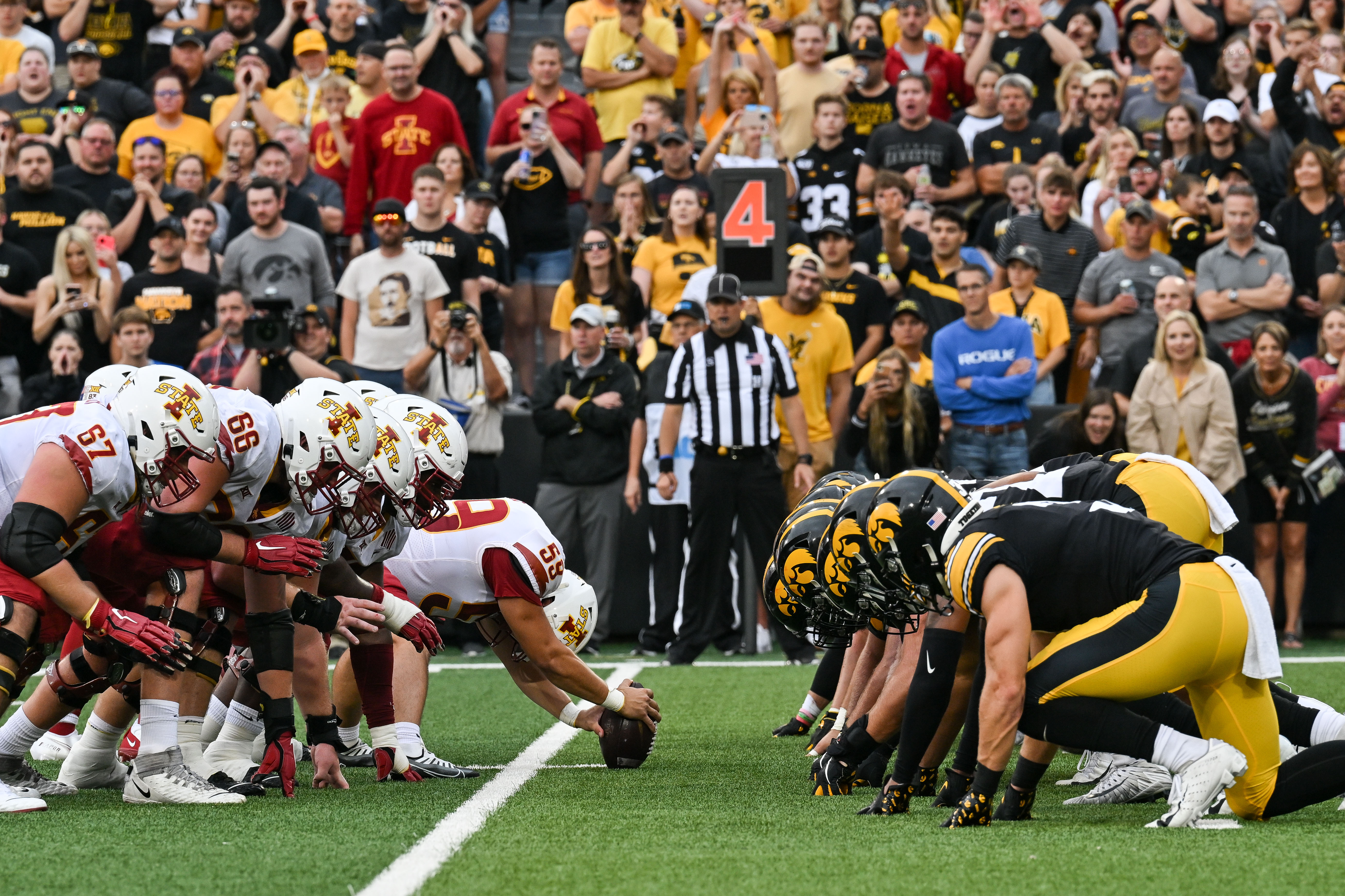Ad Disclosure

By standardizing sports betting penalties, NCAA is ahead of an issue for once
By Alex Hickey
Published:
Iowa and Iowa State fans have been waiting on pins and needles for nearly 2 months now, awaiting resolution on an investigation involving 26 Hawkeye athletes and 15 Cyclones.
All are suspected of placing bets on sporting events — something that’s perfectly legal in Iowa, but is still in violation of NCAA rules.
Since the NCAA is perpetually a reactive rather than proactive organization, there was not a great deal of clarity over what the penalties would look like for violators.
Now we have an answer. And with it, a resolution may not be far behind.
On Tuesday, the Division I council amended its reinstatement guidelines for student-athletes who commit sports betting violations.
The specifics:
- Student-athletes who engage in activities to influence the outcomes of their own games or knowingly provide information to individuals involved in sports betting activities will potentially face permanent loss of collegiate eligibility in all sports. This would also apply to student-athletes who wager on their own games or on other sports at their own schools.
- If a student-athlete wagers on their own sport at another school, education on sports wagering rules and prevention will be required as a condition of reinstatement, and the loss of 50% of one season of eligibility will be considered.
- For all other wagering-related violations (e.g., wagering on professional sports), cumulative dollar value of the wagers will be taken into consideration with the following terms for reinstatement:
- $200 or less: sports wagering rules and prevention education.
- $201-$500: loss of 10% of a season of eligibility, plus rules and prevention education.
- $501-$800: loss of 20% of a season of eligibility, plus rules and prevention education.
- Greater than $800: loss of 30% of a season of eligibility, plus rules and prevention education.
Previously, any sports betting violation resulted in a full-season suspension.
Of course, the prior rules were likely written at a time when placing a bet required finding a sketchy bookie at the back of some smoke-filled subterranean pool hall. The new rules are a far more nuanced approach to an activity that is increasingly accessible, popular and above-board.
How Iowa will be impacted
We can say with certainty that this legislation is a direct response to the Iowa investigation. That’s because the guidelines are specifically being applied to “all wagering violations reported on or after May 2.”
That is the precise date that the Iowa Racing and Gaming Commission informed Iowa and Iowa State of an investigation targeting 111 individuals, 41 of whom are active student-athletes at those schools.
Chances are the Hawks and Cyclones will both be a few bodies short when they face each other Sept. 9. But at least the punishments can now be doled out before then. And any players who are out will likely be back by the end of the season thanks to the revised rules.
A rare NCAA rules win
Though it’s technically still a reactive move by the NCAA, this qualifies as being as on-the-ball as the organization has been about a major issue in quite some time. NIL is still a complete free-for-all. But it took only 6 weeks to create some clarification around how to deal with sports betting.
These rules are reasonable and clear-cut.
If you bet on or against your own team, you should be permanently banned. End of story.
Some might consider it heavy-handed that this rule also applies to, say, a football player wagering on his own school’s basketball team.
But many of these athletes are friends or run in the same social circles. Betting on another team at the same school could very well be considered a form of “insider trading” if a bet is placed with knowledge that isn’t available to the general public. It can’t be allowed.
As long as an athlete does not commit 1 of those now-established cardinal sins, they’ll get a second chance. Pro leagues don’t allow their players to gamble on their own sport. Sitting for half a season is a fair outcome for a college player who does the same.
The rules for betting on pro sports also seem reasonable — especially for small wagers. A slap on the wrist and “don’t do that again” education are suitable for such a scenario.
Of course, the dollar amounts are a bit arbitrary. That $201 could cost you 10% of your season while a $200 bet is a free pass is a bit silly. But it is another sign of evolution from the NCAA that it is not treating all cases the same.
Think about it.
A year ago, a college wrestler could have bet $25 on the Chiefs to win the Super Bowl. It would have resulted in a lost year of eligibility — same as a basketball player betting $1,000 on a college basketball game.
That makes no sense. But differentiating the penalty for betting on college sports and pro sports does. And so too does creating different levels of penalties depending on how much money was wagered. One size does not and cannot fit all.
For years, that felt like the NCAA standard. The smallest violations were treated as harshly as the most egregious. Here we have an application of sanity.
Does that absolve the NCAA from the litany of other issues it can’t properly address? Heck no.
But they got this one right. And when that happens, it’s worth pointing out.
Alex Hickey is an award-winning writer who has watched Big Ten sports since it was a numerically accurate description of league membership. Alex has covered college football and basketball since 2008, with stops on the McNeese State, LSU and West Virginia beats before being hired as Saturday Tradition's Big Ten columnist in 2021. He is an Illinois native and 2004 Indiana University graduate.